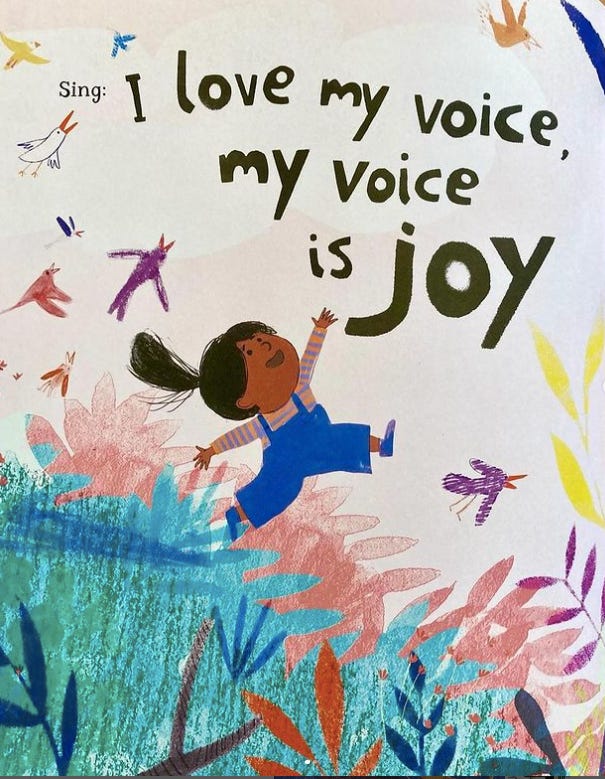I recently had a Q+A with a Berlin professor about the university protests in Germany published by the Rosa Luxemburg Foundation — great news! But the story about getting this story published is long and complicated.
It was commissioned by Zeit Magazine, a German publication that wanted to cover the student protests happening across Germany for its issue aimed at international students and researchers.
They chose the person they wanted to be interviewed about this topic - a German lecturer specialised in anti-semitism research, and they chose the angle: How does Germany’s history and sense of special responsibility play into the response to the university protests? I said yes to interviewing him because a) Dr Uffa Jensen is super interesting; his research spans transnational history, generational history, the history of emotions, right-wing populism, extremism, Jewish history and the history of anti-semitism, and b) if you live in Germany, you might have noticed that the German press is biased to the point of inaccuracy when it comes to Israel-related coverage.
There have been multiple studies and analyses about these biases in all Western media, but the German media takes the biscuit.
Just this week, German state media used the word “mistreated” to describe the brutal gang-rape of a Palestinian detainee in Israel's Sde Teiman military and torture facility.
The man endured severe anal trauma, fractured ribs, and a ruptured bowel requiring surgery — and is still in hospital. This has been one incident of many abuses of Palestinian prisoners in Sde Teiman confirmed by Israeli sources — including electric shocks, amputations due to bad conditions, playing loud music until inmates ears bleed, severe beatings and systematic torture. But German media chooses not to focus on all that. For more on how unfair German media is on this topic, journalist James Jackson is great to follow on Twitter or Instagram.


So, I thought this interview could introduce a note of balance into mainstream German media. Plus, many people with migrant backgrounds (that’s about 30% of Germany’s population) like me, feel alienated, flummoxed or outraged by the mainstream German narrative and reactions to the genocide happening in Gaza. For our diverse, democratic society to function well and fairly here, we need to have a basis for dialogue — and dialogue starts with understanding.
What resulted was a pretty straightforward explainer about why and how German history and politics is affecting universities, students and protests. But….Zeit Magazine didn’t want to run it. It was good to go until one person at the organisation stepped in with what I can only say is the weirdest feedback I have ever received. I am used to working with editors and feedback; it is part of the process of publishing, and it mostly makes the work better. The only reason I can think of for this feedback was that the views the expert (that they chose!) expressed were not the views they wanted to hear or air.
Great. Now I was left with a piece that is very Germany-specific, on a topic that most western media are reluctant to cover anyway. But the first rule of publishing is to keep pushing. I wanted to get this voice and this viewpoint out there, so I sent it to other publications. No one responded. And then I remembered reading this piece on deutsche Staatsräson (German reason-of-state) by lecturer and write Daniel Marwecki at Rosa-Luxemburg Foundation. Maybe they would be interested? I asked, and they said yes! But…by this point, my source was worried.
If the Zeit saw his interview as problematic or controversial, then maybe it was better to stay silent? People in Germany have been losing their jobs, funding and reputations over this topic. People who do not unquestioningly support Israel have been accused of anti-semitism — including Jewish voices. There have been many great articles written about this. One of my faves is this one at The Baffler.
Finally, however, he decided to go ahead with publication at Rosa Luxemburg. By this time the editor was on holiday, which delayed it by another week or so. But he ran it as he returned this Monday. Yay! Three months, days of research, two hours of interviews, around 8000 words of transcript, and an edited piece of around 1000 words later. That’s what it takes to get something published sometimes. Was it worth it? Yes. Because words, stories and ideas matter. They can be used to justify murder, to educate, to foster understanding, empathy and complexity of thought.
I really believe that the key to a more democratic, inclusive and peaceful society lies in our collective ability to express whole ourselves, to listen, and accept others too, bringing me to my next piece of news…
Whisper, Shout, Let it Out! has been shortlisted for BookTrust’s StoryTime Prize!
My book Whisper, Shout, Let it Out! which encourages children to delight in their voices has been shortlisted for the BookTrust StoryTime Prize 2025.
It’s one of five amazing books to be shortlisted. All five books are now being sent to libraries all over the UK to be read and voted on by kids and librarians. So if you live in the UK, ask your local library if they are participating and vote for my book — or whichever book you prefer!
It doesn’t matter who wins as long as kids enjoy themselves, learn and become amazing humans who will have the confidence, creativity and empathy needed to change the world!






